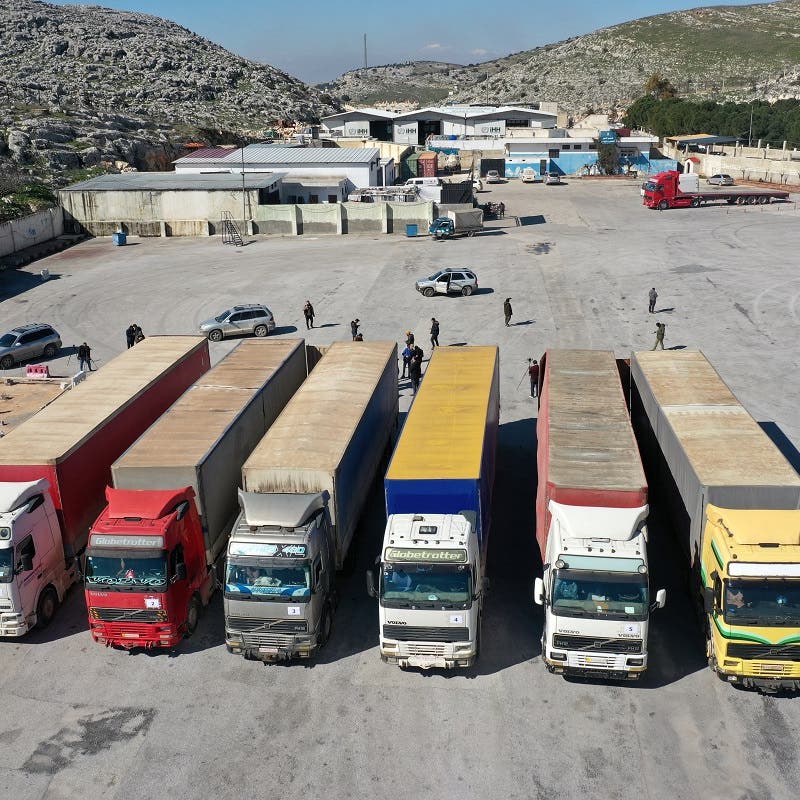UN Aid Reaches Syrian Rebel Enclave from Government Territory, Marking First Crossing Since Earthquake
In a significant development, a United Nations (UN) aid convoy has successfully entered Syria’s last remaining rebel-held enclave from government-controlled territory. This marks the first shipment to cross the battle lines since the devastating 7.8-magnitude earthquake struck Turkey and Syria back in February.
The humanitarian convoy, laden with essential supplies, traversed from a government-controlled area within the Aleppo province and made its way into Idlib, as confirmed by the UN Office for Humanitarian Affairs (OCHA). Notably, this is the first aid shipment to overcome the conflict’s front lines since early January, bringing much-needed relief to the war-torn region.
Since the earthquake in February, access to the province of Idlib from government-controlled areas had been blocked by Hayat Tahrir al-Sham, a militant group associated with al-Qaida that holds dominance in the area. However, the group has distanced itself from al-Qaida in recent years. Following the earthquake, an administrative arm of the organization accused the Syrian government, led by President Bashar Assad, of attempting to exploit the aid intended for the earthquake victims.
The aftermath of the earthquake turned aid deliveries into a political battleground, with opposing factions and numerous aid organizations urging the United Nations to send more relief shipments to northern Syria through Turkey. Conversely, the Syrian government, supported by Russia, advocated for aid to be routed through Damascus.
Typically, the UN is only permitted to deliver aid through a single border crossing from Turkey, specifically at Bab al-Hawa, owing to Russia’s insistence. However, following the earthquake, Assad agreed to the temporary opening of two new crossing points from Turkey at Bab al-Salam and al-Raee. Nevertheless, the majority of cross-border aid continued to flow through Bab al-Hawa. The mandate for cross-border aid deliveries at Bab al-Hawa is set for renewal next month at the United Nations Security Council.

While representatives of Hayat Tahrir al-Sham declined to provide a comment on their altered stance regarding aid from government-held areas, Sam Heller, a fellow with the Century International research center based in New York, suggested that the group’s decision might be linked to the upcoming U.N. vote. Heller explained that Russia’s U.N. envoy had expressed dissatisfaction with the lack of cross-line deliveries, and the allowance of this particular aid crossing may have been an effort to persuade Moscow to support the continuation of cross-border assistance.
“The renewal of the cross-border mandate hinges on Russia’s consent,” Heller noted.
The Syria Response Coordination Group, a humanitarian organization operating in northwest Syria, issued a statement highlighting the plight of humanitarian convoys caught in the crossfire of international political tensions. The group called upon international organizations to explore avenues for augmenting the amount of aid reaching the region, emphasizing the urgency of the situation.
This recent development of aid crossing into Syria’s rebel-held enclave from government territory brings hope for the war-ravaged region and underscores the significance of international efforts to alleviate suffering and rebuild the lives of those affected by the ongoing conflict.

